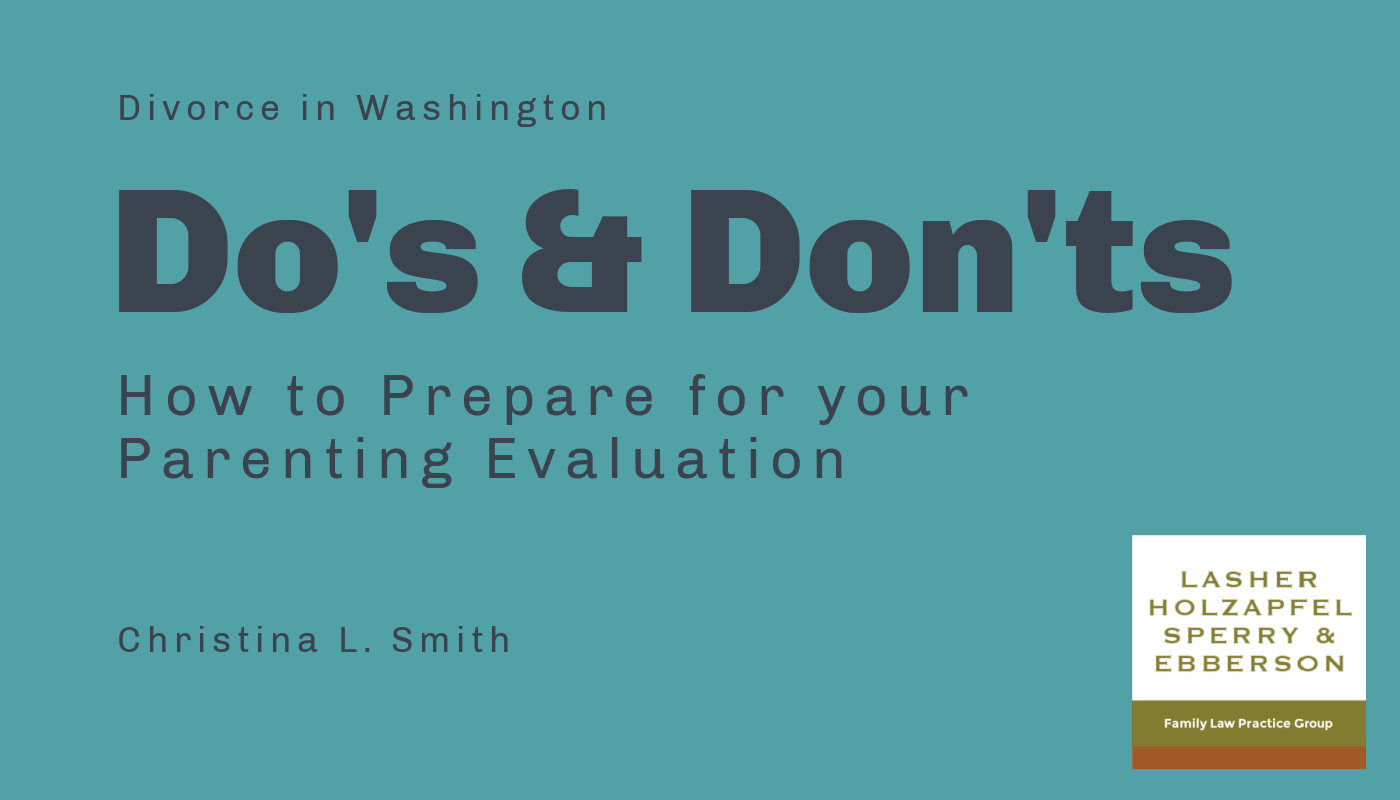Divorce in Washington: Do’s and Don’ts of How to Prepare for your Parenting Evaluation

Posted on September 10, 2021 by Christina Smith
You may either agree, or be court-ordered, to undergo a Parenting Evaluation if child custody is disputed in your family law case. A Parenting Evaluation involves a neutral evaluator who will conduct an investigation and make recommendations to the court as to what is in the children’s best interests. The evaluator will meet with the parents and children and interview collateral sources with relevant information, such as medical providers, therapists, school personnel, and community members. The evaluator may also observe the children with their parents at home, conduct psychological testing of the parties, and review documents including school and medical records. The evaluator will provide a report with findings and recommendations to assist the Court in making a decision regarding your parenting plan. Following are some Do’s and Don’ts in preparing for your parenting evaluation:
Do:
- Stay child-focused and consider what is in your child’s best interests.
- Make sure your home is clean, organized and kid-friendly.
- Find something positive to say about the other parent. Focus on the future and creative ways to create a new co-parenting structure and relationship.
- Be truthful.
- Work with your attorney to prepare a concise explanation of your proposals and concerns about the other parent along with a packet of any information that would be helpful to the evaluator.
- Have a fun and easy activity planned with your children for the home visit. Stay positive and friendly during the visit. Focus more on how you discipline and direct your children rather than having your children behave perfectly.
- Have a thorough understanding of your children’s needs and schedules: including their education, medical, social, and extracurricular activities. Know your children’s providers and schedules and have school, activity and medical information available.
- Write down questions you might have for the evaluator.
- Make sure you are thinking more about the ways in which you are a GOOD parent versus focusing entirely on why the other parent is a BAD parent.
- Choose your collateral contacts carefully. A neighbor who spends time with you and your children every week is usually a better source of information than a family member such as grandparent who lives across the country and visits once a year.
- Be courteous in your communications with your co-parent. Assume your email correspondence between you and the other parent will be reviewed by the parenting
Don’t:
- Disparage the other parent. Avoid focusing on the adult issues of the divorce or disputes unless they directly affect parenting such as drug/alcohol abuse, domestic violence, child neglect, etc. Your attorney can be especially helpful in how to best present this information.
- Be unresponsive to the evaluator’s emails or phone calls, miss appointments, or be late or unprepared.
- Coach your kids to support your position. What you tell your children about the evaluation will be age dependent. A good neutral option is something like: “A psychologist/evaluator is going to meet with our family to help us be the best parents we can be.” You should encourage your children to be open and honest with the evaluator.
- Focus on your rights as a parent over the best interests of your children.
- Talk about the litigation or share critical information about the other parent within earshot of your children.
- Inundate the evaluator with too many long emails and materials.
It is always most important to stay focused on your children and to be responsive, organized and open to recommendations from the evaluator.
If you have questions, or need assistance as you go through the divorce process, the Family Law team at Lasher is ready to help.

